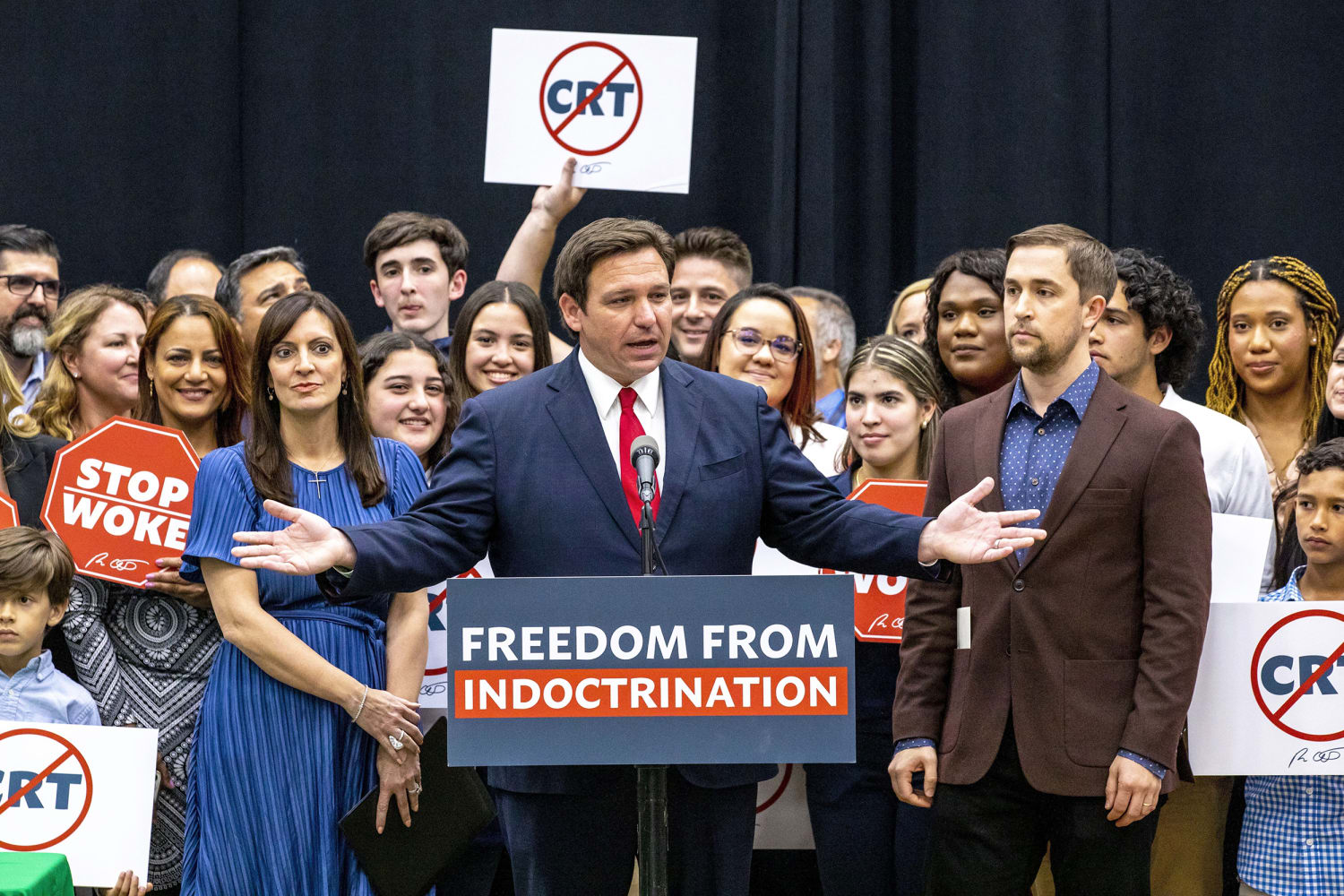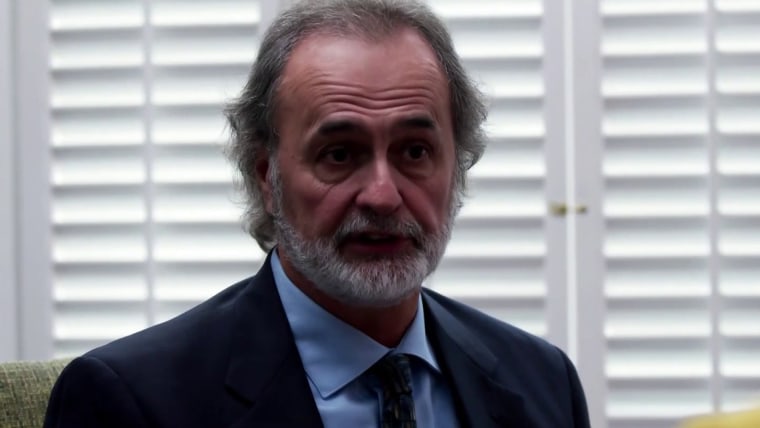When Florida Gov. Ron DeSantis over the summer cozied up to Moms for Liberty, a new national organization of mothers pushing greater parental control over what children learn in school, he joined them in arguing in favor of what he termed education rather than indoctrination. “Our school system is for educating kids, not indoctrinating kids,” he said to enthusiastic cheers.
This thinking is part of a national movement that’s growing every day. In an August survey, 1 in 4 teachers reported restrictions on what they could say and discuss in their classrooms. Indeed, dozens of states have now passed or are considering passing laws limiting what teachers can teach about social issues.
Educators on the other side of the ideological spectrum from the Florida governor have pointed out the indoctrination inherent in the DeSantis approach to teaching and learning.
But DeSantis and those around the country who are accusing teachers and schools of indoctrination are missing the obvious: All education is indoctrination to some degree, and whether you label school curricula education or indoctrination mostly depends on your point of view.
In fact, educators on the other side of the ideological spectrum from the Florida governor have pointed out the indoctrination inherent in the DeSantis approach to teaching and learning. The state’s Stop WOKE Act forbids instructors from teaching students that they should feel guilty about past injustices. Florida’s “Don’t Say Gay” legislation earned its nickname by prohibiting discussion of sexual orientation and gender identity in the lower grades.
In actuality, whatever curriculum teachers present to students emerges from someone’s point of view. It could be the view of textbook authors or publishers, researchers, scholars, modern media, internet sources or their own. No one who teaches can claim that their own education, their own life circumstances or their own system of beliefs doesn’t influence their choices about what they impart to students.
In fact, the belief that education should impart certain values along with raw knowledge and skills motivated early advocates who saw universal public education as essential to democracy. Founders of traditional American public education like Horace Mann were committed to education as indoctrination in civic values. Mann argued that students needed to learn to overcome ignorance, selfishness and passion, in order to participate rationally in self-government.
Distinguished scholars like linguist Noam Chomsky have argued that the purpose of public education has always been to indoctrinate students into the social and governmental philosophy American society needs them to carry on. Chomsky describes traditional education as a means to instill obedience and conformity in young people.
Even critical and creative thinking is driven by its own ideology and values. Choices about who deserves to be educated and what matters in curricula are steeped in the philosophy that shapes world views. Only in relatively recent times has universal literacy become a goal for all citizens, not just the elite who were groomed for leadership and power. Controversies over the teaching of evolution reflect the conflict that can occur between religious and scientific thinking.
The ideals of liberal education in the post-internet world, especially, speak to helping children locate trustworthy information about the world and teaching them to use that information to draw their own conclusions. But the information chosen, whether, for example, it reveals the nation’s flaws along with its accomplishments, inevitably reflects differing assumptions about what children need to know in order to become productive contributors to our society.
As professionals, teachers recognize these challenges and are taught to watch out for hidden agendas and correct for their biases. Just as we expect the catholic Supreme Court justices who recently voted to overturn Roe v. Wade to resist allowing the tenets of their religion to influence their rulings on abortion rights, we expect teachers to put aside their personal beliefs and teach the truth to the best of their ability. Like the rest of us, teachers today may struggle to identify the truth, and people of good will may disagree, but the search for truth is vital to the process of education.
In this process, teachers are trained to present sometimes contrary viewpoints to ensure that students confront and wrestle with such conflicts. Teaching about our differences and our increasingly diverse culture might seem to some like a form of indoctrination undermining American exceptionalism, but to others it’s an affirmation of the American way of life and the democratic principle of equal opportunity for all.
Throwing around the word indoctrination should not frighten or intimidate parents or citizens or lead them to draw dire conclusions about the content promoted in public schools. In fact, the most essential values that 21st century education reformers, as well as education philosophers like John Dewey and Paulo Freire, have advocated is instruction that opens the mind, that focuses on problem-solving, inquiry and critical thinking, and that teaches students to think for themselves rather than blindly ingest the knowledge imparted by their instructors.
In this scenario, teachers lose the power to corrupt or even influence the conclusions students draw. If Florida schools converted to such a system, perhaps DeSantis and anxious parents could learn to trust their children and put their minds at rest.
Source: | This article originally belongs to Nbcnews.com











